Major Battles Of The Napoleonic Wars

Between 1799 and 1815, a series of major conflicts were fought between France and several European nations in what became Napoleonic wars under the stewardship of young Napoleon Bonaparte. The Napoleonic war followed the War of the first Coalition (1793-1797) and involved national armies with riflemen, artillery and large-scale use of guns. Napoleon had seized power after the 1799 coup d’état in France and in 1804 he crowned himself the emperor of France in a lavish ceremony. Under his leadership, France engaged in a series of battles against nations and allied coalitions in an aim to expand the empire across central and western Europe. For more than a decade and a half, Napoleon fought many battles suffering heavy defeats and winning crucial battles.
10. Battle of Aboukir Bay (August of 1798) -
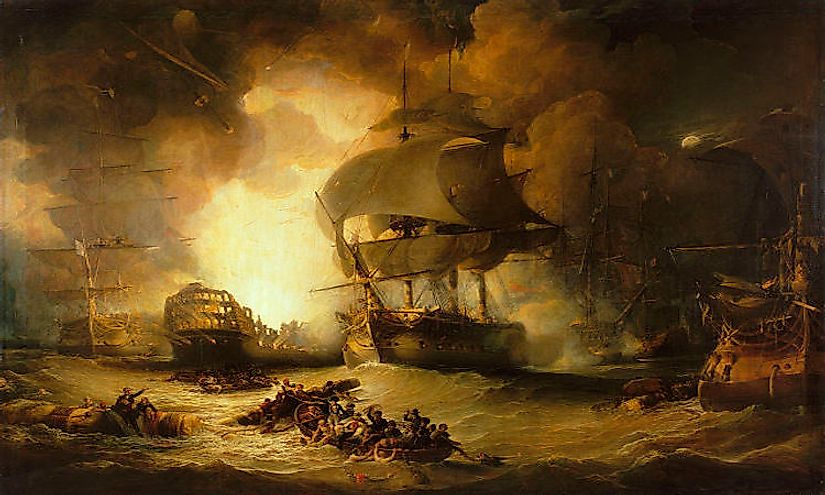
Also, known as the Battle of Nile, it was a naval engagement between the British Royal Navy and the Navy of the French Republic at Aboukir Bay. The battle was fought on August 1, 1798, and resulted in a key victory for British Admiral Horatio Nelson. Napoleon’s plan was not only to invade Egypt but also barricade the British trade routes which linked to India and by so doing, loosen the grip and power of Britain in India. The battle was fought a few hours until nightfall, and the British naval force maneuvered around the French line of battle and the fight ensued. The victory was key for the British as they regained Malta from the French and secured control of the Mediterranean.
9. First and Second Sieges of Zaragoza (1808 and 1809) -
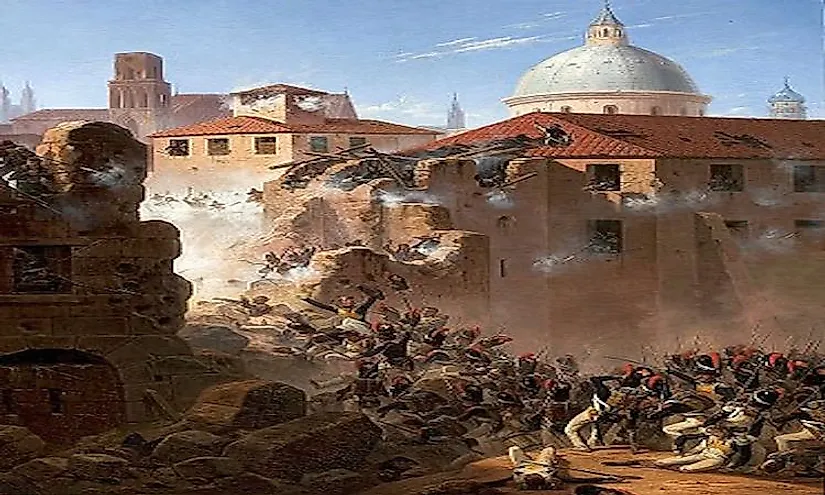
The first siege of Saragossa (Zaragoza) took place from June 15 to August 13, 1808, and illustrated the Spanish determination to defend their cities from French invasion. The Spanish were able to successfully defend their unfortified cities despite them being inferior to the French army at the time. At first, Napoleon had thought of the ongoing uprisings as small and isolated. But he learned later after dispatching a number of flying columns that the uprising was much more widespread than initially thought. The second siege of Zaragoza was an epic struggle which motivated the Spanish resistance against the French throughout the Peninsular war. This was after irregular Spanish troops had successfully defended their city from the French. As a result, Napoleon launched his campaign in Spain and the army that had retracted to the Ebro during the first siege headed to the north-eastern corner of Spain where they successfully fought the battle of Tudela and a second siege was unavoidable.
8. Battle of Roliça (August of 1808) -
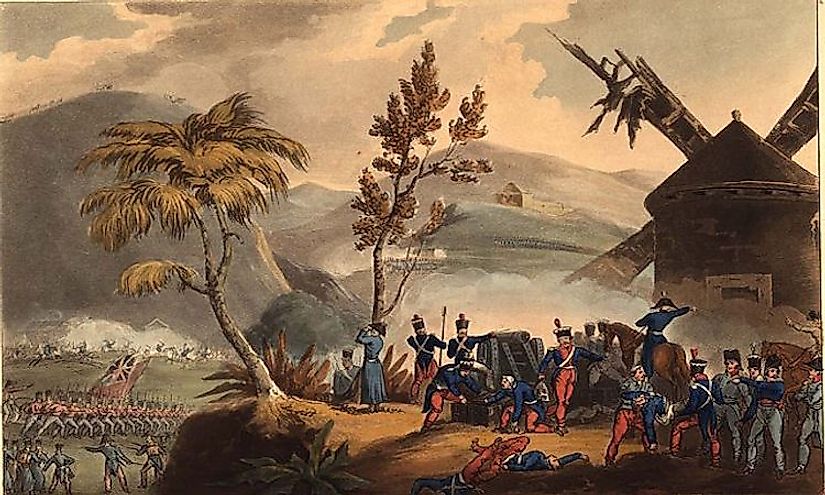
The Battle of Roliça was an engagement between an Anglo-Portuguese army against the French army near a Portuguese village called Roliça. The battle was fought on August 17, 1808, under the command of Arthur Wellesley for the allied British and Portuguese forces who defeated the French army under General Henri Delaborde. The battle was significant since it was the first war fought by the British army during the British Peninsula war. The French retreated after the defeat.
7. Battle of Embabeh (July of 1798) -
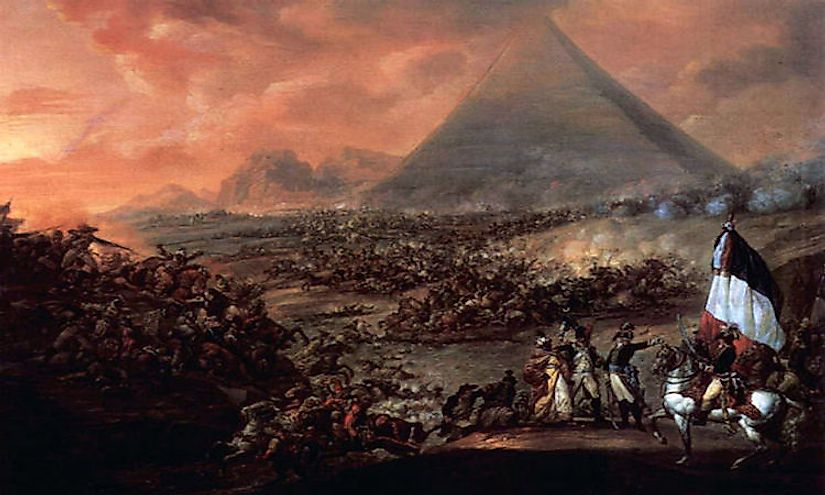
The Battle of Embabeh, also known as the Battle of the Pyramids, was fought on July 21, 1798, between the French under Napoleon Bonaparte and the Egyptian locals called Mamluks. The battle was a conclusive victory of the Napoleon army against the Egyptian army who incurred massive losses and casualties from the defeat. Also, Napoleon got to employ one of his most lethal military tactics in battle; the divisional square which became so significant thereafter in other battles. The battle of Embabeh was pivotal to the decline of the Ottoman empire and helped the French get enough supplies in the process.
6. Battle of Ligny (June of 1815) -
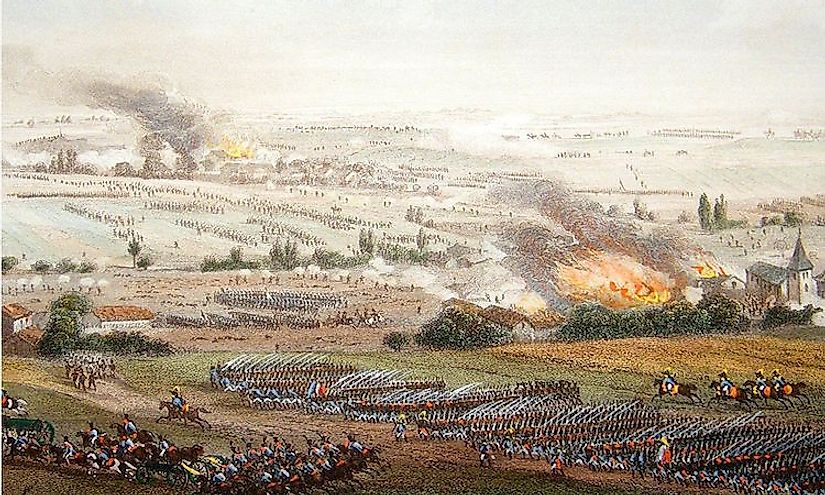
The Battle of Ligny was fought in present-day Belgium on 16 June 1815 between French troops and part of the Prussian army. The battle was the last victory in the military career of Napoleon Bonaparte. The Prussians under Field Marshal Prince Blucher were defeated in the battle, but a majority of the soldiers survived and took part in the battle of Waterloo two days later. This battle was both a tactical victory and a strategic loss as the Prussian army joined the British army led by Wellington to defeat Napoleon in the battle of Waterloo.
5. Battle of Borodino (September of 1812) -
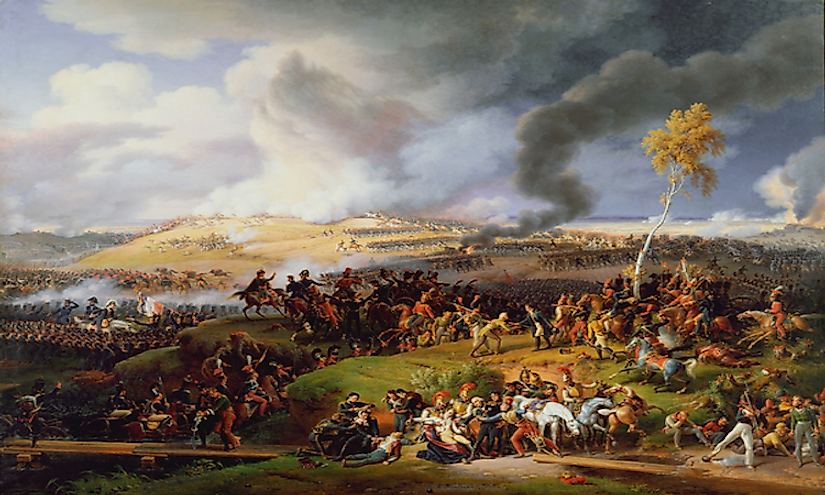
Regarded as the bloodiest battle of the Napoleonic wars, the Battle of Borodino was a French invasion of Russia on September 7, 1812. About 250,000 troops were involved in the battle which left at least 70,000 fatalities (30,000-45,000 French casualties and 39,000-45,000 Russian casualties). Napoleon assembled La Grande Armée in eastern Poland and drove into Russian territory with the hope of gaining a decisive victory. This was however not achieved due to the political infighting among the Russians, and their lack of commitment to the war which made Napoleon change his decision on engaging in a large-scale battle that he had hoped for. In the battle aftermath, the Russians retreated towards Semolino. Napoleon was free to advance and capture Moscow on September 14, but they were short of supplies when they arrived in the city. This forced them to retreat in the friendly soils in October with only about 23,000 men. The French army suffered great losses from the Russian attack and never fully recovered from it.
4. Battle of Lübeck (November of 1806) -
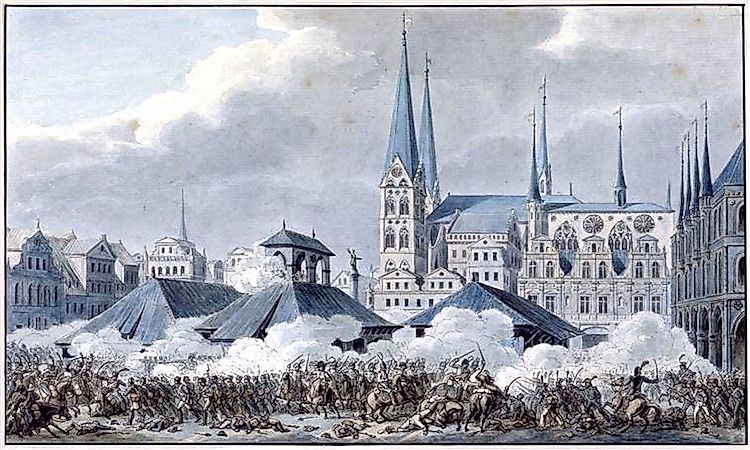
The battle of Lübeck was fought on November 6, 1806, between the French army under the command of Joachim Murat and the Prussian army commanded by Gebhard von Blücher. The battle took place in Lübeck, Germany, and was a decisive victory for the French army during the Napoleonic wars. After a defeat by Napoleon at the battle of Jena, the Prussian army withdrew to the eastern bank of Elbe river and made an attempt in the northeast to reach Oder river. Their attempt to reach the Oder river was blocked by Napoleon’s army which forced them to turn around and head west. As the Prussian army headed west, they decided to face their enemies in the neutral city of Lübeck. The battle ensued when the French overwhelmed the Prussians and inflicted heavy losses on them. The French troops caused massive losses to the city by looting, raping and murdering civilians.
3. Battle of Leipzig (October of 1813) -
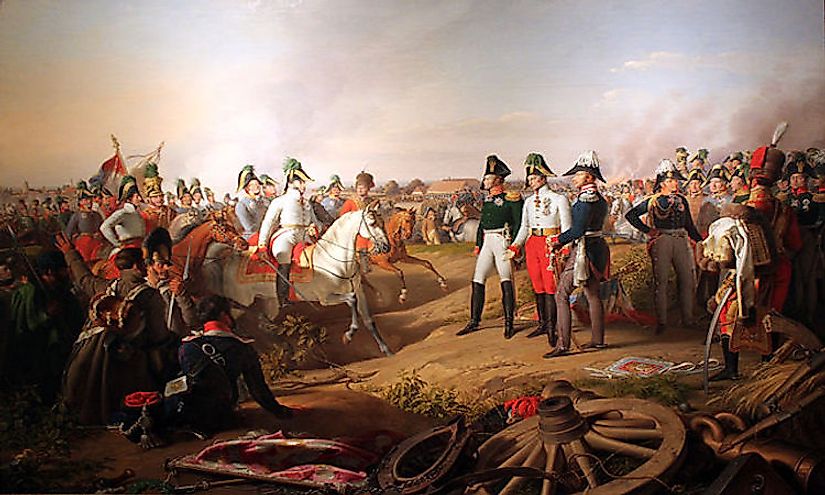
The Battle of Leipzig involved a coalition of armies against the French army led by emperor Napoleon. The battle was fought from 16th to 19th of October 1813, in what was the largest battle in Europe preceding World War I. About 600,000 soldiers were involved in the war. The Russian, Prussian, Swedes and Austrian armies constituted about 370,000 troops against the 198,000 troops of Napoleon army. Reported casualties in the war were 73,000 French and 54,000 from the allies. The battle was the first defeat for Napoleon which forced him to return to France while the coalition army plotted the invasion of France. Later in May 1814, Napoleon was forced to exile in Elba.
2. Battle of Trafalgar (October of 1805) -
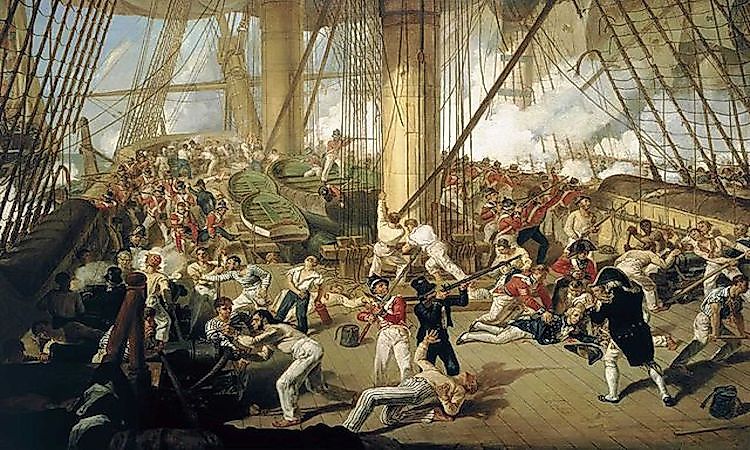
The Battle of Trafalgar was fought on October 21, 1805, in one of the greatest naval engagement between the British Royal Navy and a combined naval force of France and Spain. The Franco-Spanish navy consisted of thirty-three ships under the French Admiral Villeneuve and the Royal navy led by Admiral Lord Nelson had twenty-seven ships. The battle was significant in thwarting the plans of the French to invade England and confirmed the naval superiority of the British. Nelson’s naval tactics ensured a conclusive victory by approaching the Franco-Spanish fleet in a columnar line of battle rather than the orthodoxical parallel line. As a result, the British destroyed 19 French and Spanish vessels without losing one of their own. In the battle fought in the southwest coast of Spain off the Atlantic, there were about 1500 casualties as the British captured Villeneuve. Lord Nelson was shot and died a few moments later during the battle after being informed of the imminent victory. He became a national hero in England for preventing a French invasion.
1. Battle of Waterloo (June of 1815) -
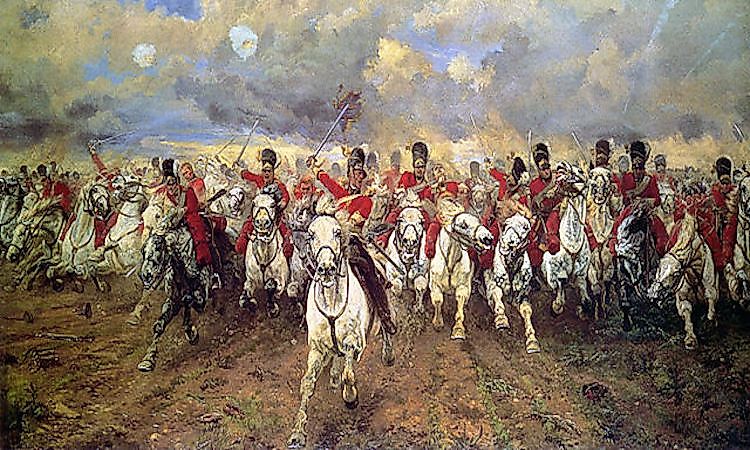
Having conquered much of continental Europe in the 19th century, the Battle of Waterloo would be the final defeat of Napoleon Bonaparte signalling the end of his military prowess. Napoleon rose through the ranks of the French army during the French revolution of 1789-1799 and became emperor in 1804. He conquered much of central and western Europe, developing to be the most dominant empire in the continent. In the battle of Waterloo which was fought on June 18, 1815, a combined force of the British and Prussian army signaled the end of 23 years of French domination. Napoleon’s 72000 troops were defeated by a combined unit of about 68,000 (British, German and Belgian units) and 45,000 Prussians. Soon after the war, Napoleon abdicated and died in exile.











